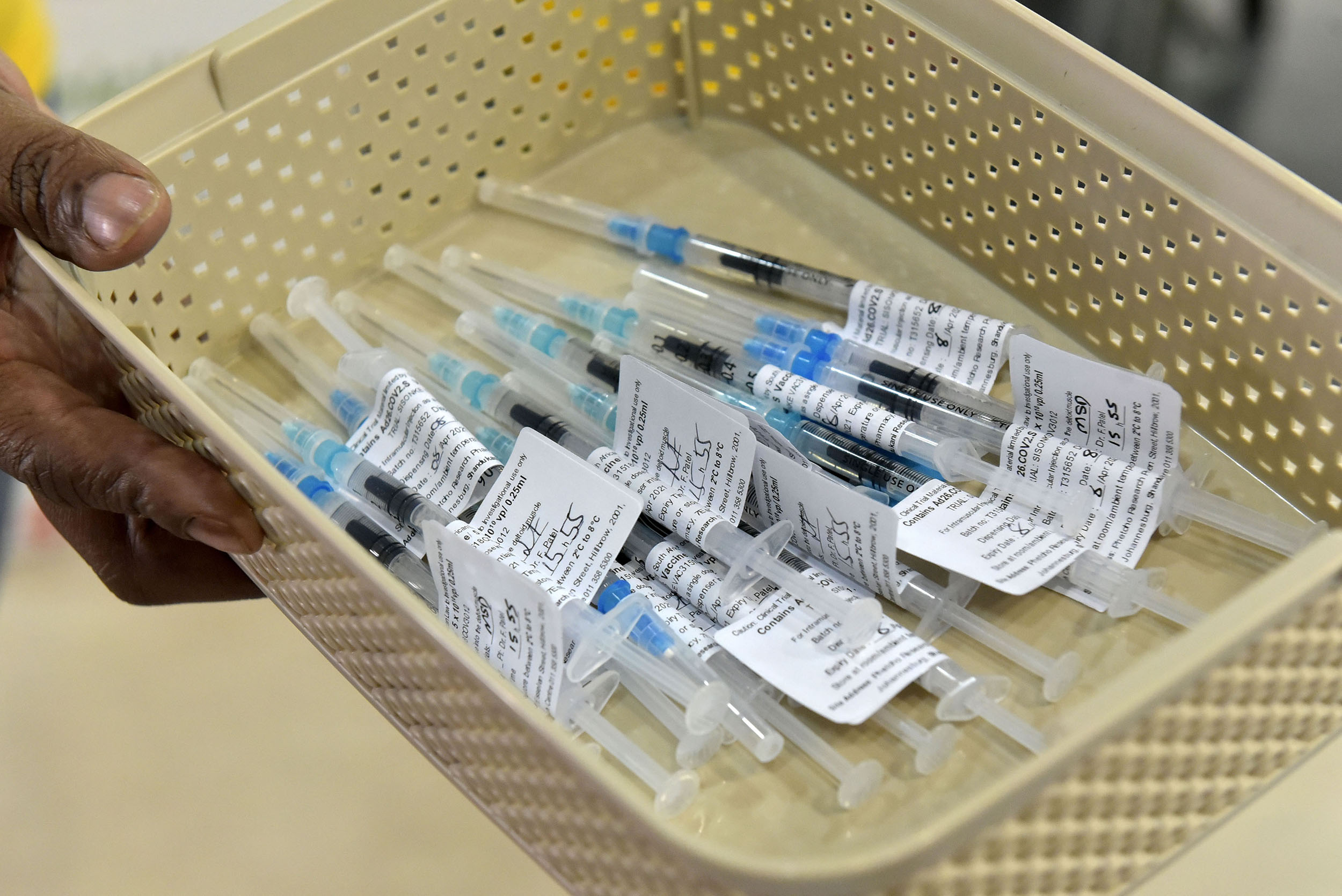
Despite a slow start and the on-again-off-again Covid-19 vaccine rollout, experts have expressed faith in South Africa’s ability and infrastructure to ramp up inoculations but will need to optimally utilise both public and private resources.
To date, 318,670 healthcare workers have been vaccinated since the distribution of the Johnson & Johnson vaccine under the Sisonke Study, but this was temporarily halted following reports of a rare clotting condition.
ALSO READ: 300,000 Pfizer vaccines arrive in South Africa
The first batch of 325,260 doses of Pfizer vaccines arrived in the country on Monday morning, with approximately the same number of doses expected to land on a weekly basis to a total of over 1.3 million doses by the end of May.
Thereafter, the vaccine supply will increase to an average of 636 480 doses weekly from 31 May, which the health department said will see SA accumulating close to 4,5 million doses by the end of June.
Though the Johnson & Johnson vaccine roll-out was considered slow despite it being a single dose, public health experts believe SA was equipped to roll out the double-dose Pfizer vaccine.
Private sector must come to the party
“We do have enough infrastructure if we treat the health system as a whole and utilise public and private facilities including pharmacies as delivery modes,” public health specialist Dr Atiya Mosam said. “However, this decentralised approach will need to be carefully planned to ensure consistent and efficient delivery.”
She added that rural and underserved areas where facilities were few and far between would need alternative delivery platforms to ensure that they were not left behind.
ALSO READ: Cabinet welcomes decision to end Johnson and Johnson vaccine suspension
Public health expert and researcher Dr Shakira Choonara believes SA has amassed significant experience in rolling out vaccines in previous immunisation programmes.
“I do not foresee that there will be challenges. These past few months may have provided insights into teething problems. Once we have the supply and if government keeps to their end of the bargain (ensure registration and implementation), we should be able to rollout the vaccine,” she said.
Choonara added that it would also be critical to keep track of vaccine hesitancy.
After landing at OR Tambo International Airport, the Pfizer batch was transported to a central warehouse under heavy security coordinated by the National Joint Operational and Intelligence Structure (Natjoints).
Samples will then be sent to the National Control Laboratory for quality assurance and, after release, will be distributed to the provinces.
Health Minister Dr Zweli Mkhize said they had been notified that the Johnson & Johnson doses still awaiting dispatch in Gqeberha in the Eastern Cape were expected to be released around the middle of May.
He said the consignment was held due to a protracted safety verification process with international regulatory agencies (the Food and Drug Administration, European Medicines Agency and the South African Health Products Regulatory Authority) in the wake of the adverse findings during inspection of Emergent BioSolutions Bayview facility in the United States, one of the manufacturing partners of Johnson & Johnson.
“In the meantime, we will continue to vaccinate our healthcare workers with the remaining early access doses of Johnson & Johnson (through the Sisonke Protocol) and we will proceed to vaccinate with Pfizer,” the minister said in a statement.
Mkhize called on all healthcare workers, including traditional healers, and all citizens 60 years and above to register on the Electronic Vaccination Data System.

